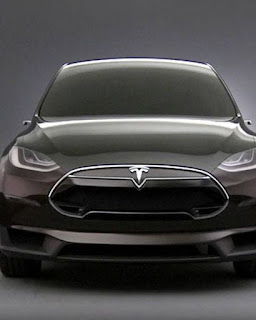Tesla's Revolutionary Impact
- Get link
- X
- Other Apps
Tesla, the electric vehicle company, has become a household name in recent years as it continues to push the boundaries of innovation and sustainability. Founded in 2003 by entrepreneur Elon Musk, Tesla's mission is to accelerate the world's transition to sustainable energy. In the following article, we will explore the history of Tesla, its current lineup of electric vehicles, and its impact on the future of transportation.
History of Tesla
Tesla was founded in 2003 by Elon Musk, Martin Eberhard, Marc Tarpenning, JB Straubel, and Ian Wright. The company's primary goal was to develop an electric sports car, and the first model, the Tesla Roadster, was released in 2008. This was followed by the Model S sedan in 2012, the Model X SUV in 2015, and the Model 3 sedan in 2017. Tesla's most recent vehicle, the Model Y SUV, was released in 2020.
Over the years, Tesla has faced numerous challenges, including production delays, quality control issues, and financial struggles. However, the company has persevered and has become a leader in the electric vehicle industry.
Current Lineup of Electric Vehicles
Tesla's current lineup of electric vehicles includes the Model S, Model X, Model 3, and Model Y. Each vehicle offers a unique combination of performance, range, and features.
The Model S is a luxury sedan that boasts impressive acceleration and a long range. It can travel up to 412 miles on a single charge and can accelerate from 0 to 60 mph in just 1.98 seconds, making it one of the fastest cars in production.
The Model X is a luxury SUV that offers similar performance and range as the Model S. However, it also features Falcon Wing doors, which provide easy access to the second and third rows of seats.
The Model 3 is a more affordable sedan that is designed for mass-market appeal. It has a range of up to 353 miles and can accelerate from 0 to 60 mph in as little as 5.3 seconds.
The Model Y is a compact SUV that shares many of the same features as the Model 3. It has a range of up to 326 miles and can accelerate from 0 to 60 mph in as little as 3.5 seconds.
Impact on the Future of Transportation
Tesla's impact on the future of transportation cannot be overstated. The company has been at the forefront of the electric vehicle revolution and has inspired other automakers to follow suit. As a result, we are seeing more and more electric vehicles on the roads today.
In addition to its electric vehicles, Tesla is also working on other sustainable energy initiatives, such as solar power and energy storage. The company's solar panels and solar roof tiles allow homeowners to generate their own electricity, while its Powerwall and Powerpack battery systems provide backup power during outages and can be used to store excess solar energy.
Conclusion
Tesla has come a long way since its founding in 2003. The company has faced numerous challenges over the years, but its dedication to innovation and sustainability has never wavered. With its current lineup of electric vehicles and its other sustainable energy initiatives, Tesla is poised to revolutionize the future of transportation and energy.


.jpeg)
.jpeg)
Comments
Post a Comment